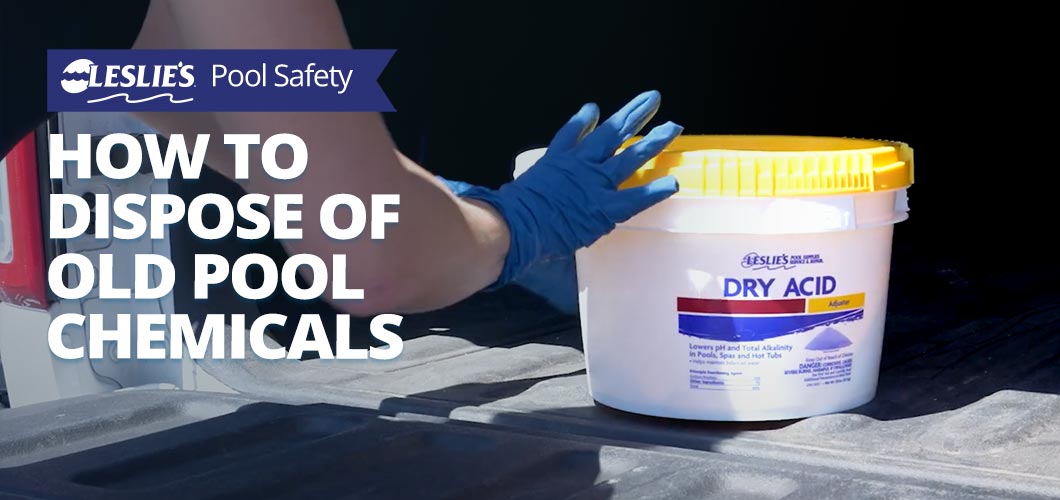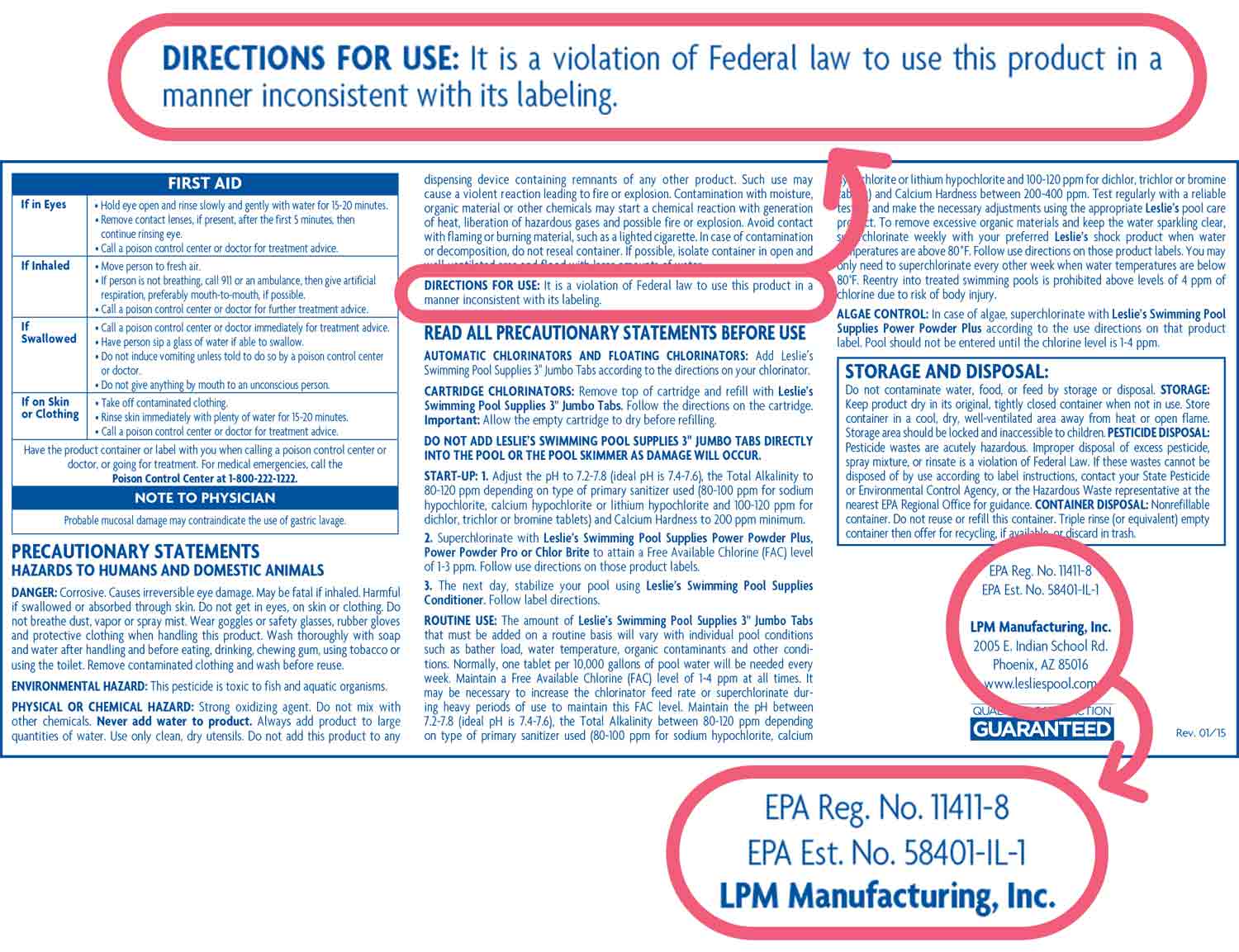
How to Dispose of Old Pool Chemicals
Pool maintenance often involves the use of various chemicals to keep the water clean, balanced, and safe for swimming. However, what happens when these chemicals begin to age or become compromised? Improperly stored or outdated pool chemicals can pose serious hazards if not handled and disposed of correctly. Let’s explore why it's important to dispose of pool chemicals safely, and how to do so in an environmentally friendly manner.
Check to See If Your Pool Chemicals Have Expired

Before you dispose of any pool chemicals, check to see if they're still good to use. While pool chemicals may not have actual expiration dates, the conditions they’re stored in can play a role in how quickly chemicals can go bad. Typically, pool chemicals last up to a year from their purchase date if you store them according to the product label. Dry products like granular chlorine can last much longer than products like liquid chlorine, which typically has a shelf life of only a few weeks.
Aside from chemicals being at least a year old, there are other ways to tell that they have expired. First, the overall look and consistency of your pool chemicals may begin to change. For example, chlorine tablets will begin to crumble and discolor when they’re close to expiring. These signs indicate a loss of potency, so using them for your pool could produce less than expected results. Additionally, if you notice that your chemicals no longer have the intended effect on your pool water, or if you're having to add more than normal to achieve the same effect, this can also be a sign that they've expired.
As a general rule, if you have pool chemicals that are older than a year, were exposed to extreme temperatures or moisture, or have not been stored according to the label instructions, it’s likely time to dispose of them. Check out our previous Resource Center article to learn more about pool chemical shelf life.
EXPERT TIP: When storing chemicals, be sure to keep your liquid and dry chemicals separate to avoid potential chemical reactions. Store them in a cool, dry, secure, and well-ventilated environment to protect them from damage, prolong their shelf life, and keep them out of reach from children and animals.
Follow Product Label Recommendations

The first step in safely disposing of pool chemicals is to check the product label. Many pool chemicals, especially those regulated by the EPA, include specific instructions on proper disposal. These instructions may vary depending on the type of chemical and its formulation. Some labels may recommend neutralizing, diluting, or treating the chemicals before disposal. While others may require special handling or transportation to a hazardous waste facility. Always follow the recommendations on the label to ensure safe handling and disposal.
Contact Your Local Waste Management Facility
In most cases, the safest and easiest route for disposing of pool chemicals is to contact your local waste management facility. They can provide guidance on disposal options and guidelines specific to your area. Some municipalities offer special collection events or designated drop-off locations for household hazardous waste. Others may ask you to bring the chemicals directly to their facility for proper disposal. By working with your local waste management facility, you can ensure that the chemicals are properly and safely disposed of, and in compliance with your local regulations.
Safety Tips for Handling and Transporting Chemicals
When handling hazardous chemicals, it's important to wear appropriate protective gear, such as gloves and safety glasses, to avoid accidental contact with your skin and eyes. When transporting chemicals to a disposal facility, keep them tightly sealed in their original containers. If the containers are broken or leaking, place them inside a clean, chemical-resistant, leak-proof container or bag to prevent spills during transport.
Keep incompatible chemicals separate when transporting them. Never mix chemicals even during disposal, as they can have a dangerous reaction! Instead, discard chemicals separately and according to their specific product label instructions.
Here are a few examples of chemicals that can have bad reactions with other chemicals:
- Chlorine products, such as tablets, granular shock, or liquid chlorine
- Non-chlorine oxidizers
- Muriatic acid
- Sodium carbonate (Soda Ash)
- Sodium bicarbonate (Alkalinity Up)
Embrace Environmental Responsibility

Expired or improperly stored pool chemicals may lose their effectiveness or become unstable over time. This may lead to chemical reactions that cause significant risks to both your health and the environment. Therefore, it's essential to handle and dispose of pool chemicals with care and caution, and with respect to the environment.
Proper disposal of pool chemicals is not only about protecting yourself and others from potential hazards, but also about being environmentally responsible. By following safe disposal practices, you can help prevent pollution of soil, water, and air, as well as minimize risks to wildlife and ecosystems. Additionally, properly disposing of chemicals makes certain that they don't end up in landfills or wastewater treatment systems, where they can potentially cause harm.
By following the tips outlined above, you can safely and responsibly dispose of pool chemicals while protecting yourself, others, and the environment. Remember to always check the product label for specific disposal instructions, contact your local waste management facility for guidance, and wear appropriate protective gear when handling hazardous chemicals. Together, we can ensure a cleaner, safer, and healthier environment for all.
No matter what you need for your pool, you can count on Leslie’s to have the products and expertise to help you get the job done right the first time. For more information on pool care and equipment maintenance, check out our Resource Center, visit our YouTube channel, or stop by your local Leslie’s and speak with one of our experts!